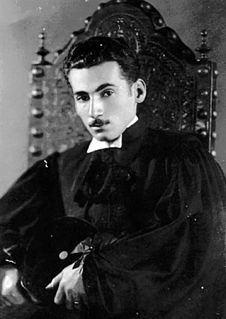A Quote by Adam Morris
The Brazilian national identity is not one of João Gilberto Noll primary concerns. This does not mean social critique is absent: race, gender, and class relations are considered in Quiet Creature. And these are universal relational matters, not necessarily particular to any country. Some critics have commented that understanding the specific Brazilian political context of the novel is helpful for reading Quiet Creature. This may be true, but it's not prerequisite for understanding it.
Quote Topics
Absent
Any
Be True
Brazilian
Class
Concerns
Considered
Context
Country
Creature
Critics
Critique
Does
Gender
Helpful
Identity
Matters
May
Mean
National
National Identity
Necessarily
Novel
Particular
Political
Prerequisite
Primary
Quiet
Race
Reading
Relations
Social
Some
Specific
True
Understanding
Universal
Related Quotes
Jorge Luis Borges had the soapbox and the authority to complain about this myopic understanding of the duty of Latin American writers, which sometimes forecloses their unique modernism and experience of modernization in favor of a mythic past or an artificially constructed ideal national subject. So likewise in João Gilberto Noll, readers shouldn't expect samba and Carnival and football. The Brazilian national identity is not one of his primary concerns.
Once I looked into it, I was taken aback to learn that pretty much nothing by João Gilberto Noll was available in English translation. I was confident that I could find an editor and the readership for a translation: Noll is highly respected in Brazil, and at the same time divisive, somewhat like Hilda Hilst. Neither of them enjoys the universal acclaim you might associate with Clarice Lispector, whom everyone adores, myself included. Still, I considered it a tremendous injustice that Noll had not been more widely translated and was determined to rectify it.
There are such beings in the world -- perhaps one in a thousand -- as the creature you and I should think perfection; where grace and spirit are united to worth, where the manners are equal to the heart and understanding; but such a person may not come in your way, or, if he does, he may not be the eldest son of a man of fortune, the near relation of your particular friend, and belonging to your own county.
My feeling is that my body and all my things inside me - when I move, when I do everything - are Brazilian because my family is Brazilian, and my mother language is Brazilian Portuguese. But all the thinking in my life, all the treatment with people, I think I'm more from Spain. That's how I grew up.
Intersectionality has made an important contribution to social and political analysis, asking all of us to think about what assumptions of race and class we make when we speak about "women" or what assumptions of gender and race we make when we speak about "class." It allows us to unpack those categories and see the various kinds of social formations and power relations that constitute those categories.


























